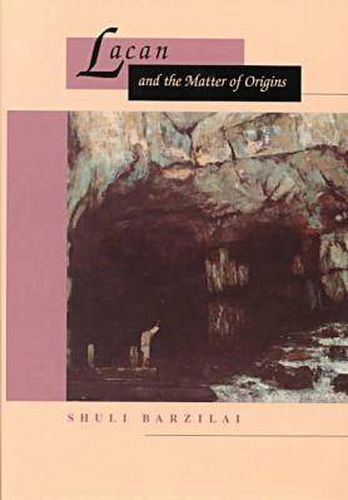Readings Newsletter
Become a Readings Member to make your shopping experience even easier.
Sign in or sign up for free!
You’re not far away from qualifying for FREE standard shipping within Australia
You’ve qualified for FREE standard shipping within Australia
The cart is loading…






Lacan and the Matter of Origins traces the development of Lacan s thinking about the role of the mother in psychical formation. It examines the conceptual struggle throughout his work over issues of maternal agency in relation to the constitution of human subjectivity, and the theoretical, historical, and autobiographical reasons for this struggle.Lac an is widely held to emphasize the paternal dimension of human subjectivity and the phallic signifier. This book demonstrates that the mother occupies a crucial position in the Lacanian project, even if the maternal relation is not systematically theorized. The maternal figure appears as a Cheshire Cat who fades away and reappears at different times. The book traces the major shifts in Lacan s understanding of the maternal within an intertextual framework that includes Augustine, Klein, Koj ve, and Rank. Pursuing in Lacan s writings the sometimes contradictory or unassimilable functions of the mother, the book closely tracks his variations on and departures from the Freudian definition of such concepts as primary identification, narcissism, castration, deferred action, and the death drive. Lacan s major contribution to twentieth-century thought emerges here in the context of his ostensibly loyal yet revisionist stance toward Freud as his major precursor in the psychoanalytic field.
$9.00 standard shipping within Australia
FREE standard shipping within Australia for orders over $100.00
Express & International shipping calculated at checkout
Lacan and the Matter of Origins traces the development of Lacan s thinking about the role of the mother in psychical formation. It examines the conceptual struggle throughout his work over issues of maternal agency in relation to the constitution of human subjectivity, and the theoretical, historical, and autobiographical reasons for this struggle.Lac an is widely held to emphasize the paternal dimension of human subjectivity and the phallic signifier. This book demonstrates that the mother occupies a crucial position in the Lacanian project, even if the maternal relation is not systematically theorized. The maternal figure appears as a Cheshire Cat who fades away and reappears at different times. The book traces the major shifts in Lacan s understanding of the maternal within an intertextual framework that includes Augustine, Klein, Koj ve, and Rank. Pursuing in Lacan s writings the sometimes contradictory or unassimilable functions of the mother, the book closely tracks his variations on and departures from the Freudian definition of such concepts as primary identification, narcissism, castration, deferred action, and the death drive. Lacan s major contribution to twentieth-century thought emerges here in the context of his ostensibly loyal yet revisionist stance toward Freud as his major precursor in the psychoanalytic field.